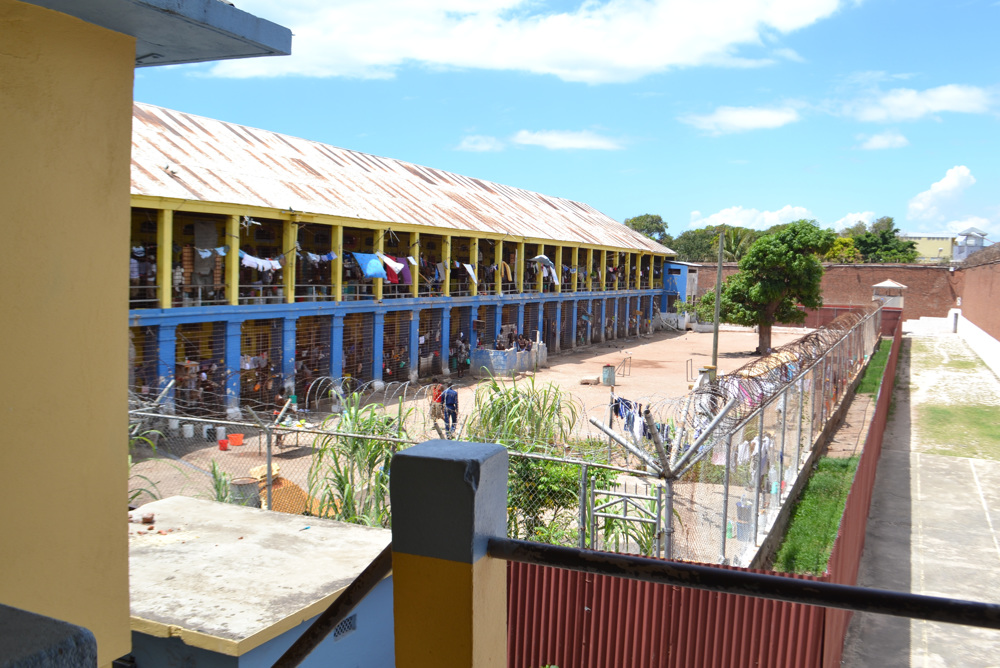Condoms: A controversial idea for fighting HIV in Jamaican prisons
Colin Stewart is a 45-year journalism veteran living in Southern…
The HIV rate in Jamaica’s prisons has doubled in seven years, but controversy surrounds a plan to distribute condoms in order to halt the spread of the virus.

New prison condom call – Debate reignited over contraceptives to curb HIV spike
The doubling of HIV cases in Jamaica’s prisons has resurrected the debate on formally offering condoms to curb the spread of sexually transmitted infections, with a clergyman being the loudest advocate that contraceptives be introduced.

A Sunday Gleaner report revealed that a 2018 study conducted by the National Family Planning Board (NFPB) showed that the HIV prevalence rate was 6.9 per cent, more than 100 per cent higher than the 3.3 per cent recorded in 2011. The statistic ranks prisoners as the third-highest risk group behind transgender women and gays.
Same-sex intercourse among men is outlawed in Jamaica.
Anglican cleric and human-rights campaigner, Father Sean Major-Campbell, said that making condoms available for prisoners was “basic common sense” in response to a public-health crisis.
“We are hiding our heads in the sand when we try to moralise and say this is illegal,” Major-Campbell, rector of Christ Church in Vineyard Town, told The Gleaner last night.
“We have to realise that in that broad subjective area of human sexuality, there is circumstantial same-gender intimacy, where individuals whose primary identity in terms of sex orientation is not that of same-gender intimacy, but they will actually relate that way in certain circumstances, as in prison, or in war, where the opposite gender may not be readily available over time,” he said.
Major-Campbell said such persons would likely revert to their primary sexual orientation.
But director of medical services at the Department of Correctional Services, Dr Donna-Michelle Royer-Powe, has reservations, citing the 1997 riot at the Tower Street Adult Correctional Centre during which several inmates were killed and 40 injured.
“When Colonel [John] Prescod tried to introduce condoms in prison years ago, even before I got there, there was a riot, and several persons died, because what they interpreted it to say was that that means you are saying we’re having sex with each other and you know Jamaica is very homophobic,” Royer-Powe told The Gleaner. Prescod was commissioner of corrections at the time.
“The general population is very homophobic. We have your few who we know they are homosexual, but they are a minority in the prison, and the other thing is that the buggery law is still in effect, so condoms are illegal in the prison. … What we’re looking at now as a possibility for prevention is using the HIV treatment,” Royer-Powe added.
Executive director of human-rights group Stand Up for Jamaica, Carla Gullotta, also recalled the Prescod-era riots and the outrage triggered by the attempt to curb the spread of disease with the introduction of prophylactics.
“Since that time, nobody has been raising the issue anymore, but I think the main thing to do is an education campaign in terms of sexual health. About the condom, I would be very careful, knowing the reaction, but I believe in education, and that if you teach them how to use the condom, you would have taught them for when they go back to society,” said Gullotta, whose organisation interfaces with prisoners and provides educational and other services.
Gullotta said that she recently raised the issue of sex education for inmates with the minister of health.
Health Minister Dr Christopher Tufton urged correctional authorities to review the conditions of incarceration and how they are managed, as well as how inmates are grouped.
“We don’t want to encourage it further by providing the means, but at the same time, we have to be concerned about the fact that it is a reality, it is happening, and the risks associated with it, so in a sense, some decisions will have to be made,” he said.
“There is one part of the narrative that speaks to rape, for example, which means that, or suggests that, some are not necessarily infected through voluntarily sexual activity, some may be forced, and that clearly would be concerning also and would require some sort of examination,” Tufton added.
Rudyard Spencer, state minister in the Ministry of National Security, under whose oversight prisons fall, declined comment, saying he would have to consult with correctional officials before making a statement.





the hiv is increaseing day-by-day. may this hiv has to be ended as early as possible.